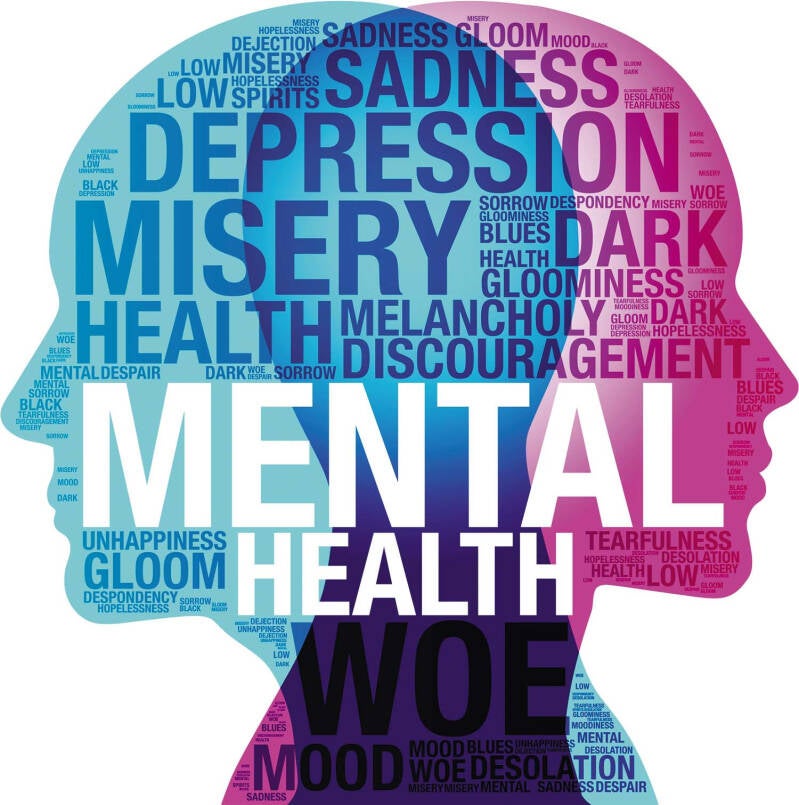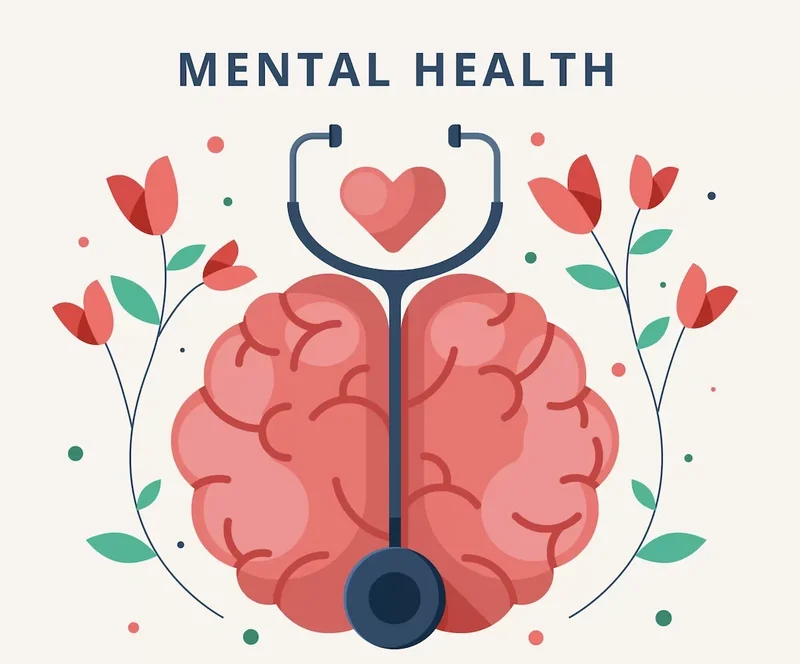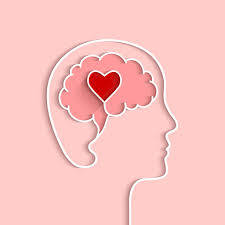






How Hijama Cupping Therapy Can Help with Mental Health
Mental health is just as important as physical health, yet it is often overlooked until challenges arise. In today’s fast-paced world, increasing numbers of individuals experience mental health difficulties ranging from stress and anxiety to more severe conditions such as depression and post-traumatic stress disorder (PTSD). While medication and counselling are widely used, many people are now exploring natural therapies such as Hijama cupping therapy as an effective complementary treatment.
This article explores the concept of mental health, its symptoms, risk factors, home remedies, and natural therapies, with a specific focus on the benefits of Hijama cupping therapy.
What Is Mental Health?
Mental health refers to a person's emotional, psychological, and social well-being. It influences how individuals think, feel, and behave, as well as how they handle stress, relate to others, and make decisions. Mental health is essential at every stage of life, from childhood to adulthood.
Good mental health enables individuals to:
-
Cope with the stresses of life
-
Work productively
-
Build healthy relationships
-
Realise their full potential
Symptoms of Mental Health Issues
Mental health difficulties can present in various forms. Some common signs and symptoms include:
-
Persistent sadness or low mood
-
Excessive worry or anxiety
-
Irritability or anger
-
Withdrawal from friends, family, and activities
-
Difficulty concentrating or making decisions
-
Changes in sleeping or eating habits
-
Feelings of hopelessness or worthlessness
-
Physical symptoms such as headaches or digestive issues without a clear medical cause
It is important to note that symptoms may vary depending on the specific mental health condition and the individual.
Risk Factors and Causes of Mental Health Issues
Mental health problems do not usually stem from a single cause. Instead, a combination of factors may contribute:
-
Biological Factors: Genetics, brain chemistry, or hormonal imbalances.
-
Life Experiences: Trauma, abuse, neglect, or significant loss.
-
Environmental Influences: High-stress environments, financial difficulties, or social isolation.
-
Lifestyle Choices: Poor diet, lack of exercise, substance misuse, and inadequate sleep patterns.
A report published by the Mental Health Foundation UK highlights that social determinants such as poverty and inequality also have a significant impact on mental well-being.
Home Remedies for Mental Health Support
While professional help is essential for managing mental health disorders, incorporating home remedies into daily life can also support emotional well-being:
-
Regular Exercise: Physical activity releases endorphins, known as 'feel-good' hormones, which help reduce stress, anxiety, and depression.
-
Healthy Nutrition: A balanced diet plays a vital role in supporting brain function and emotional stability. Consuming a variety of fruits and vegetables ensures the body receives essential vitamins, minerals, and antioxidants that assist with mental health.
Specific examples include:
-
Leafy Greens (e.g., spinach, kale): High in folate, which is linked to lower rates of depression.
-
Berries (e.g., blueberries, strawberries): Packed with antioxidants that combat oxidative stress associated with anxiety and mood disorders.
-
Bananas: Rich in tryptophan and vitamin B6, both essential for serotonin production—a key neurotransmitter affecting mood.
-
Avocados: Contain healthy fats and B vitamins that support nervous system health.
-
Nuts and Seeds (e.g., walnuts, flaxseeds): Provide omega-3 fatty acids, crucial for brain health and reducing inflammation linked to depression.
-
Whole Grains (e.g., oats, brown rice): Stabilise blood sugar levels, helping to maintain balanced energy and mood throughout the day.
-
-
Quality Sleep: Maintaining a regular sleep routine aids in mood regulation and cognitive function.
-
Mindfulness and Meditation: Practices like deep breathing and guided meditation can reduce stress, anxiety, and enhance mental clarity.
-
Social Connection: Maintaining strong relationships with friends and family provides emotional support and helps prevent feelings of isolation.
-
Limiting Alcohol and Caffeine: Excessive consumption can worsen anxiety and sleep disturbances, negatively affecting mental health.
Natural Therapies for Mental Health
Natural therapies have gained popularity as complementary approaches to conventional mental health treatments. These include:
-
Aromatherapy: Essential oils such as lavender and chamomile can promote relaxation and reduce anxiety.
-
Acupuncture: An ancient Chinese therapy that may help balance the body’s energy and alleviate mental health symptoms.
-
Yoga and Tai Chi: Mind-body exercises that combine physical movement with breathing techniques, helping reduce stress and promote clarity.
-
Herbal Remedies: Supplements such as ashwagandha, valerian root, and St John’s Wort have shown positive effects in some clinical studies.
The Role of Hijama Cupping Therapy in Supporting Mental Health
Among the most intriguing and effective natural therapies is Hijama cupping therapy. Rooted in Islamic and traditional medicine, Hijama involves creating suction on specific points of the body using specialised cups to draw out stagnant blood, toxins, and negative energy.
How Hijama Cupping Therapy Can Help with Mental Health
Emerging research and practitioner case studies suggest that Hijama can have a positive impact on mental well-being through several mechanisms:
-
Reduction of Stress Hormones: According to a study published in the Journal of Traditional and Complementary Medicine (2020), Hijama therapy was associated with a significant reduction in cortisol levels, the primary stress hormone.
-
Improved Blood Circulation: Hijama enhances blood flow, oxygenating the brain and improving overall mental clarity and focus.
-
Detoxification of the Body: By removing toxins, Hijama may help reset the body's physiological balance, indirectly supporting better mood regulation.
-
Pain Relief and Relaxation: Chronic pain and discomfort can worsen mental health. Hijama has been shown to alleviate physical ailments, contributing to emotional well-being.
-
Spiritual and Emotional Release: For many, Hijama offers not just physical relief but also a spiritual experience, fostering a sense of calm and rejuvenation.
Client Experiences and Practitioner Insights
At Pure Hijama Cupping Therapist, many clients report feeling noticeably calmer, lighter, and more emotionally balanced after their Hijama sessions. While scientific research on Hijama for mental health is still growing, early findings and patient testimonials suggest that it can be a valuable part of a holistic mental health support plan.
Final Thoughts
Mental health is a vital component of overall well-being, and addressing it requires a multi-faceted approach. Alongside medical interventions, natural therapies like Hijama cupping therapy provide a complementary path towards healing and balance.
If you are experiencing persistent mental health challenges, always consult with a qualified healthcare professional. Natural therapies, including Hijama, should be used as supportive treatments alongside professional advice rather than a substitute for it.
Book Your Hijama Session
At Pure Hijama Cupping Therapist, we offer professional, safe, and according Hijama sessions in Whalley Range, Manchester, United Kingdom.
Contact Us:
📍 Location: Whalley Range, Manchester, UK
📞 Phone: 07561373918
📧 Email: info@pure-hijama-cupping-therapist.co.uk
🌐 Website: www.pure-hijama-cupping-therapist.co.uk
📷 Instagram: purehijamacuppingtherapist
📘 Facebook: Pure Hijama Cupping Therapist
⚠️ Important Medical Precaution
The content shared in this blog is intended for educational purposes only and does not constitute medical advice. Always seek guidance from a qualified healthcare professional before beginning any complementary treatment, including Hijama (wet cupping) therapy.
🚫 Conditions & Situations Requiring Medical Clearance or Contraindication:
-
Pregnancy – Hijama should not be performed during pregnancy due to potential risks to the mother and baby.
-
Anaemia – Low haemoglobin or red blood cell counts require controlled cupping and medical supervision.
-
Heart Disease – Cardiac conditions may be affected by changes in circulation during Hijama.
-
Diabetes – Poorly controlled diabetes can delay healing and increase infection risk.
-
Clotting Disorders or Blood Thinners – These increase the risk of excessive bleeding or bruising and require medical approval.
-
Low Blood Pressure – Cupping may further lower blood pressure, which can lead to dizziness or fainting.
-
Cancer (Active or Recent) – Those undergoing cancer treatment may have compromised immunity or increased risks during therapy.
-
HIV or Hepatitis C/D – These viral infections impact the immune system and liver. Hijama must only be considered with specialist medical guidance and in a strictly controlled setting.
-
Infections – Wet cupping should never be performed if there is an active infection present in the body.
-
Weakened Immune System or Recent Surgery – Individuals recovering from surgery or with suppressed immunity are more vulnerable to complications.
-
Steroid Use (including corticosteroids) – Long-term or high-dose use of steroids can suppress the immune system, thin the skin, and delay healing. This increases the risk of post-cupping side effects such as bruising or infection. Medical advice is essential before proceeding with treatment.
-
Liver or Kidney Disease – These organs play key roles in detoxifying the blood; Hijama may place stress on these systems if they are impaired.
-
Severe Varicose Veins or Vascular Conditions – Performing Hijama on or near compromised veins can cause further damage or blood vessel rupture.
-
Neurological Disorders (e.g. epilepsy, multiple sclerosis) – Such conditions may require specialist assessment before cupping.
-
Severe Mental Health Conditions – Clients with untreated severe mental illness (e.g. psychosis, schizophrenia) may not be suitable candidates for treatment due to the nature of the therapy.
-
Immunosuppressive Medication (e.g. chemotherapy, transplant medication) – Increases risk of infection and delayed healing.
-
Eating Disorders or Severe Malnutrition – Individuals with very low body weight or nutrient deficiencies may not tolerate cupping well.
-
Severe Allergies or Anaphylaxis History – If you have known allergies to oils, latex, or other substances, please let us know in advance.
-
Under 18 or Over 65 Years of Age – Cupping for children and the elderly must be approached with caution due to sensitive skin and potential underlying health concerns.
-
Skin Conditions, Open Wounds, or Infected Areas – Hijama should never be carried out on inflamed, broken, or infected skin.
✅ Our Commitment to Safe Practice
At Pure Hijama Cupping Therapist, we provide a clean, clinical, and respectful environment. All treatments are delivered by a qualified, experienced, and fully insured practitioner using sterile and controlled techniques tailored to your individual needs.
Your health comes first. If you are uncertain about your eligibility for Hijama, please contact us or speak to your GP before proceeding with treatment.
Begin Your Natural Healing Journey with Hijama Cupping Therapy
📅 Ready to Book Your Hijama Session?
At Pure Hijama Cupping Therapist, we prioritise client safety above all else and personalise every session according to individual health needs. If you’re interested in Hijama therapy, we are here to support you with expertise, care, and integrity. Whether you're managing a long-term condition or simply seeking holistic detox, your safety and wellbeing are our top priorities.
📍 Contact Us to Book Your Appointment
Pure Hijama Cupping Therapist
📍 Whalley Range, Manchester, United Kingdom
📞 Phone: 07561373918
📧 Email: info@pure-hijama-cupping-therapist.co.uk
🌐 Website: www.pure-hijama-cupping-therapist.co.uk
📸 Instagram: @purehijamacuppingtherapist
📘 Facebook: Pure Hijama Cupping Therapist


Add comment
Comments